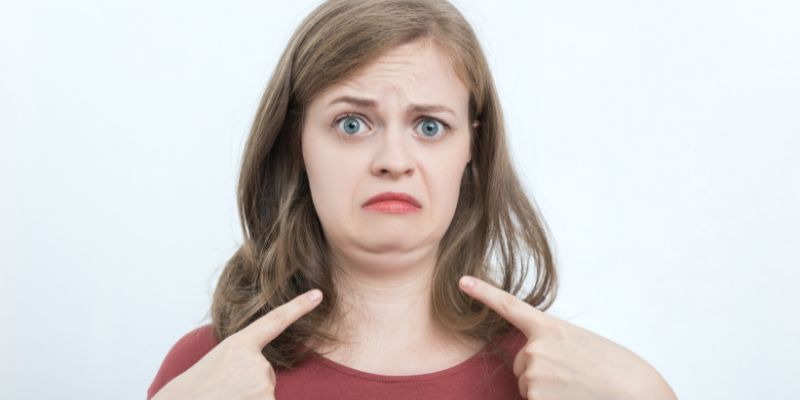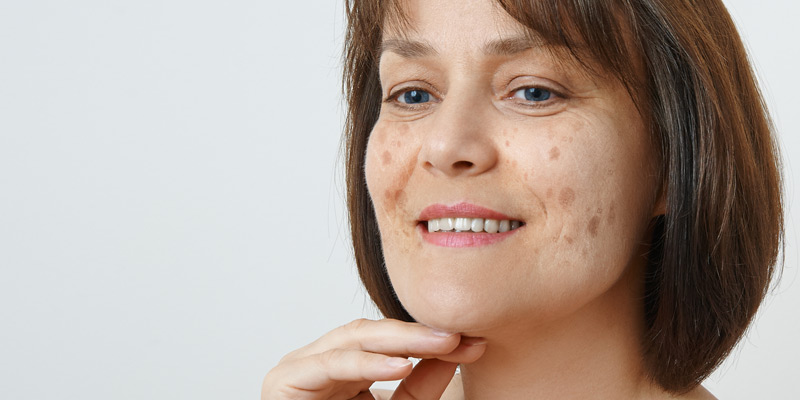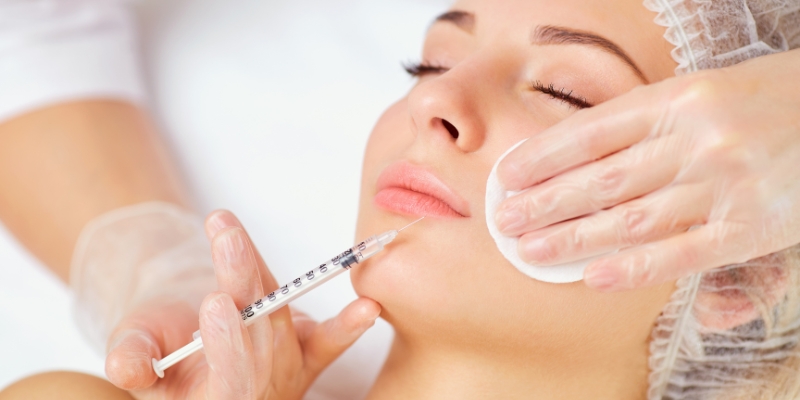In This Article
9 Best Anti Aging Treatments In India For Youthful Skin – Blog
Are you seeing early signs of ageing on your skin? Does this premature ageing bother you? Are you wondering what anti aging treatments you can explore to improve your skin health? If yes, then this article is a must-read for you. Read on to understand ageing, its causes, and the early signs to watch out for. Learn about the effective ageing skin treatments that can help restore your skin health, reducing and controlling the early onset of fine lines, wrinkles and age spots.
In This Article

Understanding Ageing
Ageing is an inevitable natural process that first becomes evident on our skin. While we all desire glowing and radiant skin, with time, it ages, marked by wrinkles, dullness, dryness and sagging. Several factors, such as loss of body mass, poor hydration, and breakdown of skin layers, contribute to skin ageing. It may also result from genetic predisposition, cellular metabolism, and hormonal changes. There are also contributing external factors like UV exposure, pollutants, and chemicals. Besides these, specific body mechanisms like glycation and oxidative stress also affect skin ageing.[1]
What Causes Ageing Skin?
Both internal and external factors influence the ageing process [2]. Mentioned below are some of them:
- Internal Factors: These are factors intrinsic to your body and skin type. They are unique to each person and affect the skin ageing process differently from person to person.
- Genetics: Your genes play an essential role in your ageing process [3]. They affect several skin characteristics, such as the rate at which your skin will lose collagen, its elasticity, and the appearance of wrinkles.
- Hormones: Hormonal changes, especially those related to estrogen and testosterone, affect the skin. A fall in estrogen levels during menopause often leads to thinner, less elastic skin.
- Cellular Processes: Over time, the natural regeneration process of skin cells slows down. Collagen production and elastin decrease with age. Also, the cellular turnover rate declines, leading to a buildup of dead skin cells.
- Metabolism: As we age, our metabolism slows down, affecting the skin’s ability to repair and maintain itself. Slow metabolism reduces blood circulation, affecting the supply of oxygen and nutrients to the skin, which then appears dull and dry.
- Intrinsic ageing: This refers to your natural ageing process, which occurs with time. During this process, there is a gradual loss in skin elasticity, causing thinning and the appearance of fine lines.
External Factors
- Sun Exposure (photoaging): Ultraviolet (UV) radiation from the sun is a major external factor contributing to skin ageing. UV rays penetrate deep into your skin and can damage even the DNA in the skin cells. As a result, collagen and elastin fibres break down, causing premature wrinkles, pigmentation, and loss of skin elasticity.
- Pollution: Environmental pollutants increase free radicals on the skin, causing oxidative stress that speeds up the ageing process. Overexposure of the skin to pollutants makes it look dull, pigmented and aged.
- Lifestyle Choices: Our everyday lifestyle choices significantly affect our skin health. These include smoking, alcohol consumption, poor dietary choices, and intake of sugar-loaded foods and drinks. Diet consumption relying on refined carbs and lacking vitamins and fibre affects skin ageing and causes wrinkles and dullness.
- Skincare Routine: Inadequate, inconsistent, or improper skin care can contribute to skin ageing. If you do not moisturise enough, over-exfoliate, or use harsh chemicals, your skin will surely start deteriorating. A loss of natural oils leads to dryness and irritation, which can speed up ageing.
- Stress: Chronic stress often leads to an increase in cortisol levels, a hormone that degrades collagen. If this happens, your skin becomes thinner, and the wrinkles become evident much faster.
- Sleep Deprivation: People who do not enjoy adequate sleep often have dull skin with dark circles and the early onset of fine lines. Inadequate sleep reduces the skin’s time to repair and rejuvenate.
Signs & Symptoms of Ageing
Here are some signs of ageing that you need to watch out for so that you can identify and take suitable anti aging treatments on time:
- Loss of Elasticity and Volume: With ageing, collagen and elastin production reduces. Consequently, firmness and plumpness decrease, giving the skin a sunken and hollow appearance. This is why the cheeks and under eyes look droopy and ageing.
- Wrinkles: These deep lines and creases result from repetitive facial movements and expressions. When the skin becomes thin and less elastic, wrinkles appear around the forehead, corners of the eye and the mouth.
- Fine Lines: Fine lines are smaller, shallow lines that develop before wrinkles appear. You will notice them around the eyes when you laugh. They become prominent around repetitive facial expressions, frown lines or laugh lines. They indicate decreased skin hydration.
- Visible Pores: As skin loses its elasticity with age, pores can become more enlarged and noticeable. The buildup of dead skin cells and reduced collagen production worsens this even more.
- Laugh Lines: Nasolabial folds, also known as laugh lines or smile lines, run along the sides of the nose, going up to the corners of the mouth. They become more prominent with age due to repetitive smiling and loss of skin volume.
- Sagging Skin: The natural reduction in collagen levels causes the skin to droop with age. This sagging is most visible along the jawline, under the chin, and on the neck.
- Skin Thinning: Ageing causes the dermis to become thinner than usual. This results in delicate skin that bruises and damages easily. Thinning commonly happens when fat and collagen under the skin start to reduce.
- Uneven Skin Tone: Age spots, sun exposure, and hormonal changes can lead to hyperpigmentation and an uneven complexion. Dark spots, redness, and blotchiness are common signs of uneven skin tone.
- Age Spots: Also known as liver spots or solar lentigines, these flat, dark areas occur due to prolonged sun exposure. They commonly appear on the face, hands, shoulders, and arms.
- Dull Skin: Ageing slows down the skin’s renewal process. This results in dead skin accumulating on the surface, leading to a lacklustre appearance. Dull skin lacks the natural glow and radiance of youthful skin.
- Dry Skin: With age, the skin loses its ability to retain moisture. Hence, aged skin looks dry and feels rough-textured. Decreased oil production and environmental factors also contribute to dry, flaky skin.
Best Anti aging Treatments In India:
Anti aging treatments are primarily of two types — Preventive treatments and Corrective treatments. While preventive treatments help to delay the signs of ageing, corrective treatments reverse or reduce the existing signs.
Are you looking for the best anti aging treatment for men and women? Here are some of the most popular corrective treatments that you can explore:
-
Injectable Anti aging Treatments:
These non-surgical procedures help rejuvenate the skin by injecting substances directly into targeted areas.
Injectable Fillers:
How it Works: Injectable fillers are often hyaluronic acid-based. Dermatologists inject them into the skin to restore volume, smooth wrinkles, and enhance facial contours.
Ageing Concerns Treated:
Wrinkles and fine lines
Volume loss in cheeks, lips, and under-eye areas
Nasolabial folds
Marionette lines
Benefits:
Immediate results
Minimally invasive
Enhances facial symmetry and volume [4]
Minor Side Effects:
Swelling and redness at the injection site
Bruising
Temporary discomfort or tenderness
-
Botox:
How it Works: Doctors inject Botox (Botulinum toxin) into specific muscles to temporarily paralyse them and reduce the appearance of wrinkles caused by muscle movements. Botox is famous as the best lip treatment for ageing lips today.
Ageing Concerns Treated:
Forehead lines
Sagging lips
Crow’s feet around the eyes
Frown lines between the eyebrows
Benefits:
Quick procedure with no downtime
Prevents the formation of new wrinkles
Smooths existing wrinkles
Minor Side Effects:
Temporary bruising and swelling at the injection site
Headache
Mild pain or discomfort
-
Dermal Fillers:
How it Works: Dermal fillers, made from hyaluronic acid or calcium hydroxylapatite, add volume and smooth wrinkles when injected beneath the skin.
Ageing Concerns Treated:
Deep lines and wrinkles
Facial volume loss
Lip enhancement
Scars and depressions
Benefits:
Immediate volumising effect
Natural-looking results
Long-lasting effects (6 months to 2 years)
Minor Side Effects:
Swelling and bruising
Redness
Lumpiness or firmness at the injection site
-
Profhilo:
How it Works: Profhilo is one of the most popular dermatology treatments for ageing skin. It is an injectable hyaluronic acid treatment that spreads evenly within the skin. It stimulates collagen and elastin production for overall skin rejuvenation.[5]
Ageing Concerns Treated:
Skin laxity
Fine lines and wrinkles
Dehydrated skin
Benefits:
Improves skin texture and hydration
Stimulates natural collagen production
Provides a subtle, overall lift and firmness
Minor Side Effects:
Mild redness and swelling
Temporary bruising
Injection site pain
-
Minimally Invasive Anti aging Treatments:
Here are some of the most preferred minimally invasive ageing skin treatments that require minor to no surgery and have quick recovery:
MNRF Treatment (Microneedling Radiofrequency):
How it Works: This popular anti aging treatment in India combines microneedling with radiofrequency energy. It stimulates collagen production by creating controlled micro-injuries in the skin.
Ageing Concerns Treated:
Wrinkles and fine lines
Sagging skin
Acne scars and large pores
Benefits:
Improves skin texture and tone
Involves minimal downtime
Offers long-lasting results
Minor Side Effects:
Redness and swelling
Mild discomfort during the procedure
Temporary bruising
-
Chemical Peels:
How it Works: The process involves topical application of a chemical solution to the skin to exfoliate the top layers. Chemical peels, the best treatment for age spots, also promote cell turnover and reveal fresher, smoother skin beneath.
Ageing Concerns Treated:
Fine lines and wrinkles
Sun damage and age spots
Uneven skin tone
Benefits:
Smoother and brighter skin
Reduces pigmentation and spots
Stimulates collagen production
Minor Side Effects:
Redness and peeling
Sensitivity to sun
Mild stinging or burning sensation
-
PRP Face Therapy (Platelet-Rich Plasma):
How it Works: This treatment uses the patient’s own blood, processed to concentrate platelets, which the dermatologist injects into the skin to stimulate healing and collagen production.
Ageing Concerns Treated:
Fine lines and wrinkles
Skin texture and tone
Acne scars
Benefits:
Natural rejuvenation using the body’s own healing factors
Minimal risk of allergic reactions
Improves overall skin quality
Minor Side Effects:
Redness and swelling
Bruising at injection sites
Temporary mild pain
-
Energy-Based Anti aging Treatments:
These treatments use focused energy to stimulate collagen production and tighten the skin, helping to reduce the signs of ageing.
- HIFU (High-Intensity Focused Ultrasound)
How it Works: This treatment uses focused ultrasound energy to heat deeper layers of skin, stimulating collagen production and tightening tissue.
Ageing Concerns Treated:
Skin laxity
Fine lines and wrinkles
Sagging skin
Benefits:
Non-invasive with no downtime
Natural-looking lifting and tightening
Long-lasting effects
Minor Side Effects:
Temporary redness and swelling
Mild discomfort during the procedure
Rarely, slight bruising
-
Laser Resurfacing:
How it Works: It uses laser energy to remove damaged outer layers of skin and stimulate new skin growth and collagen production. It is an effective age spots on face treatment.
Ageing Concerns Treated:
Fine lines and wrinkles
Pigmentation and age spots
Acne scars and uneven skin texture
Benefits:
Smoother and younger-looking skin
Reduces discolouration and spots
Stimulates collagen for long-term benefits
Minor Side Effects:
Redness and swelling
Sensitivity to sunlight
Temporary peeling or crusting
-
Topical Products for Anti aging Treatment
Topical products, such as creams and serums, contain active ingredients like retinoids, peptides, antioxidants, and hyaluronic acid. These work to manage the various signs of ageing, addressing concerns like Topical products are non-invasive and easy to use. They are easy to incorporate into a daily skincare routine and offer long-term preventive and corrective benefits. However, it is best to use topical treatments only under professional guidance to avoid side effects like redness, irritation, dryness or sensitivity.
- Fine lines and wrinkles
- Skin hydration and texture
- Hyperpigmentation and age spots
NOTE:
Each of these treatments offers specific benefits and addresses different ageing concerns, making it possible to customise anti aging regimens to individual needs and preferences.
Preventive Measures for Ageing Skin
Ageing is a natural process. However, here are some preventive measures you can adopt to maintain youthful skin [6]:
- Stick to a Skincare Routine: It is essential to do your skincare consistently. Cleanse to remove impurities, tone for skin tightening, moisturise to maintain hydration, and exfoliate to remove dead skin cells. These steps keep your skin smooth and radiant. You can also try some home remedies if you are looking for anti aging treatment at home.
- Use Retinol: Retinol derived from vitamin A promotes cell turnover. It also boosts collagen production and helps reduce fine lines and wrinkles. Products with retinol are best used as part of your nightly skincare routine.
- Sunscreen: Sun damage usually causes premature ageing. Always use a broad-spectrum sunscreen with at least SPF 30 daily. Do not skip cloudy days. Remember, the harmful UV rays can reach you through the clouds.
- Healthy & Balanced Diet: What you eat impacts your skin. Ensure you consume a diet rich in all the nutrients in the daily recommended quantities. A nourishing diet helps skin repair and builds elasticity, giving your skin a fresh and younger look.
- Get Enough Sleep: Adequate sleep is essential for skin repair and regeneration. Aim to get at least 7-9 hours of sleep daily to reduce dark circles, puffiness, and dull skin.
- Stay Hydrated: Hydration is vital to maintaining skin elasticity and suppleness. Drink at least seven to eight glasses of water daily to maintain hydrated skin.
- Drink Less or Avoid Alcohol: Alcohol dehydrates the skin and can lead to inflammation and breakouts [7]. Limit alcohol intake to keep your skin clear and healthy.
- Quit Smoking: Smoking speeds up the ageing process by reducing the blood flow, oxygen and nutrients to the skin. Quitting smoking improves skin texture and colour.
- Avoid Tanning: Whether you tan through sun exposure or indoor tanning beds, avoid it to prevent skin damage. Tanning also increases your risk of cancer.
- Exercise Often: Regular exercise boosts blood circulation and increases oxygen delivery to the skin cells. Working out always leaves one with a healthy glow.
- Vitamin Intake: Make sure your daily diet has ample skin-friendly vitamins like C, E, and D. These help reduce inflammation, protect from free radical damage, slow down ageing, and improve skin texture.
- Manage Your Stress: Chronic stress causes breakouts and premature ageing [8]. To manage your stress better, incorporate yoga, deep breathing, and meditation techniques into your daily routine.
How Much Does Anti aging Treatment Cost?
Several factors affect the cost of anti ageing treatments in India. Some of these include:
- Area of treatment: The severity of the problem and the area to be treated affects the number of sessions required, which in turn affects the overall treatment cost.
- Treatment Type: Surgical treatments like facelifts are always more expensive than non-surgical options like microneedling and chemical peels.
- Provider expertise: Board-certified dermatologists and cosmetic surgeons are always more expensive than less experienced professionals due to their vast experience and expertise.
- Location: Treatment costs are always higher in bigger cities than small towns.
- In-Clinic Facilities: A clinic offering state-of-the-art technology and advanced facilities will charge more for their high-quality treatment.
Here is the approximate cost of anti aging facial treatment in India.
- Chemical peels: ₹1,000 – ₹9,000
- Laser resurfacing: ₹2,000 – ₹9,000
- Botox injections: ₹12,000 – ₹20,000 per area
- Dermal fillers: ₹18,000 – ₹95,000
- Microneedling: ₹5,000 – ₹15,000 per session (may require multiple sessions)
NOTE:
You can consult a dermatologist to know the exact cost and get an accurate estimate based on your specific needs. It is best to schedule a consultation and get a customised quote with a cost breakdown relevant to treating your concerns.
Takeaway
There are many anti-ageing treatments for women and men alike. These ageing face treatments, from injectables to topical products, cater to different skin concerns and preferences. Whether you are looking for immediate results or are seeking long-term benefits, there is always a suitable option to explore. However, it is essential always to consult a dermatologist to choose the safest and most effective treatment for your skin type.
Frequently Asked Questions On Anti ageing Treatments:
Many factors can speed up the ageing process of your skin. In most cases, the common reason behind faster skin ageing is exposure to sunlight. The sun emits UV rays, which can damage your skin. Photodamage leads to dry, wrinkled skin due to oxidative stress, which causes free radical damage. This exposure also causes age spots or sun spots. Besides these, other factors include – hereditary factors, poor dietary choices, smoking, irregular or disturbed sleep, and stress.
One cannot entirely rely on one treatment as the best treatment for anti-ageing. When it comes to skin health, a combination approach always works best. It is always a good idea to consult an experienced dermatologist to create a customised skincare regime. If necessary, take recommendations for in-clinic procedures or medications.
If you want to manage your ageing process and slow it down, maintain a healthy lifestyle with a balanced diet, ample exercise, and adequate sleep. Take steps to manage stress and have a regular skincare regime. Stay amply hydrated throughout the day, and never forget your sunscreen.
It is not possible to stop the skin from ageing. However, you can slow down the process by following the above-mentioned tips. You can also consult a dermatologist for specific recommendations to boost your skin health.








